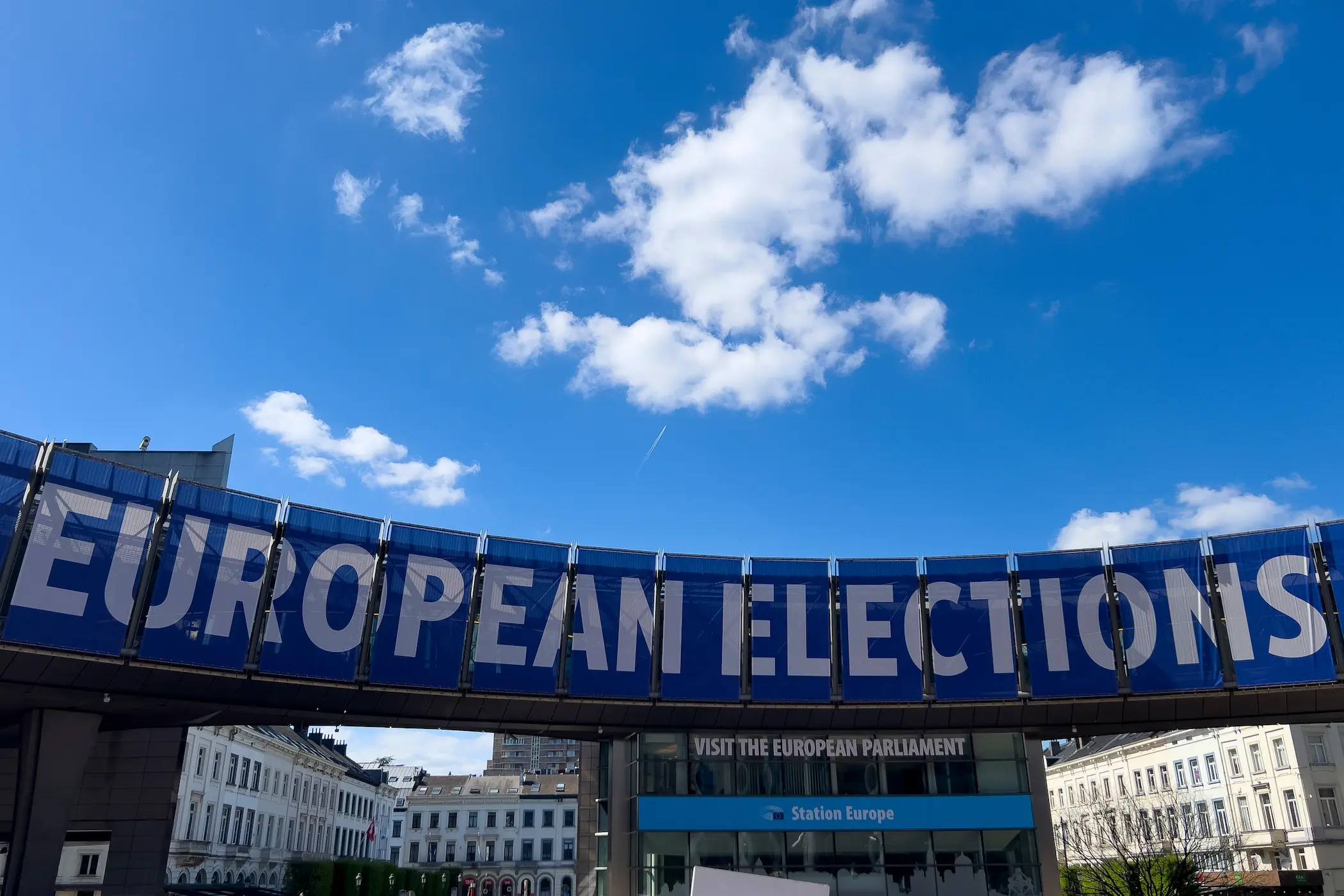While most electoral debates focus on domestic politics, foreign policy remains a crucial aspect. It seems, however, that Prime Minister Rishi Sunak was aware of this when he appointed David Cameron as Secretary of State for Foreign Affairs. Regardless of who wins, most likely the Labour Party, there will definitely be changes to the current situation. Issues ranging from relations with European neighbours to migration and defence are ready for the upcoming prime minister.
U.K.- EU Relations
In a post-Brexit era, relations with the European Union (EU) remain a key topic in electoral debates. In 2019, the Conservatives campaigned on the promise of “getting Brexit done,” which resulted in straining relationships with key trading partners and weakened the U.K.’s influence in Europe across various issues. At the same time, the Labour Party was led by the left-leaning Jeremy Corbyn, a supporter of Brexit and a vocal critic of the U.K.’s nuclear deterrent. Conversely, both major parties now are taking a pro-European stance. The Conservatives now support closer cooperation in areas such as defence, scientific research and innovation, and trade with Northern Ireland. Meanwhile, Labour has parted ways with Corbyn and is now led by the pro-European Keir Starmer, who, if elected, intends to enhance collaboration with Brussels. Trade between the two entities being particularly important. About 50 % of the U.K.’s trade is with the EU, and numerous U.K. companies have supply chains closely tied to the EU. While the two parties have recently published manifestos outlining their main approaches to international trade, both lack detailed policies on the subject. The Conservative manifesto highlights the idea of leveraging Brexit freedoms to reform unspecified EU regulations and suggests that Brexit has allowed the U.K. to pursue initiatives like building more housing. While emphasizing the importance of European security, pledging to strengthen the Joint Expeditionary Force and establish new defence treaties with Germany and Poland, Europe remains a contentious issue for the Conservatives, who prefer ad hoc cooperation with Brussels over formal agreements.
In contrast, the Labour Party advocates for more formalized collaboration, particularly in defence matters. The Labour Party adopts a more positive stance on European relations. Their manifesto advocates for “an improved and ambitious relationship with our European partners,” promising to work towards reducing trade barriers, establishing regular U.K.-EU structured dialogues, and achieving mutual recognition of standards. This positions Labour’s European policy in stark contrast to that of the Conservatives. A key priority for a Labour government would be to renegotiate the 2021 Trade and Cooperation Agreement (TCA). However, leader Starmer has publicly toughened his stance, ruling out a return to the single market or customs union, and thus, not pledging to fully restore pre-Brexit freedom of movement between the U.K. and Europe. Despite this, Labour officials have announced their intention to enhance cooperation in other areas, proposing a new “security pact” with the 27-member bloc to foster closer coordination on a wide range of military, economic, climate, health, cyber, and energy security issues. At the popular level, it appears that Britons have moved away from Euroscepticism, with increasing support for cooperation with the EU. Only a small fraction, 5%, of Britons oppose all forms of cooperation with the EU. There is particularly strong support for reducing trade barriers in goods and services with the EU, with 61% of Britons in favour, including a majority of Leave voters at 58%. This puts Labourers, who advocate for better relations with the EU, in a better position than the Conservatives who are already losing on many grounds.
Regardless of whether Labour or the Conservatives are elected, there is a clear and growing desire in the U.K. for closer cooperation with the EU. This shift is influenced by current geopolitical challenges, such as a more inward-looking US and the ongoing Russian threat to European security. The depth of this relationship will ultimately be shaped by the election outcome.
Security and Defence
Electoral campaigns have seen both the Conservatives and Labour positioning themselves as guarantors of security in an increasingly troubled world. Both parties’ manifestos propose maintaining the U.K.’s nuclear weapons system, spending 2.5% of GDP on defence — albeit within different timeframes — meeting commitments to NATO, and continuing to provide military aid and support to Ukraine.
Long regarded as the “party of defence,” the Conservatives have historically been seen as strong on national security. When announcing the general election, Prime Minister Sunak aimed to position the election around which party could ensure a “secure future” for the U.K. Campaign posts, widely shared by Conservative candidates and supporters, depicted Shadow Cabinet members as threats to national security. Major defence pledges from the Conservatives include plans for a new procurement model for defence, the acceleration of Armed Forces modernization, and a range of measures to support veterans. Labour sought to preempt potential Conservative attack lines on defence by unveiling its national security plans even before the campaign began. A central element of Labour’s vision for national security has been its proposal for a U.K.-EU security pact, along with a Strategic Defence Review within its first year in government. During the campaign, Labour has strengthened its defence commitments with a pledge to implement a nuclear triple lock, clearly aimed at distancing Keir Starmer from his predecessor, Jeremy Corbyn.
There is a notable consensus between the Conservatives and Labour on national security. Both parties prioritize support for Ukraine and NATO, acknowledging the need to increase defence spending and modernize the U.K.’s defence systems to address evolving global challenges.
Immigration
Since 2016, the year of Brexit, data indicates a soaring number of immigrants seeking to arrive at the U.K. Despite this, and in contrast to electoral dynamics elsewhere in Europe where immigration is a central issue, British policymakers appear hesitant to confront Brexit’s implications for immigration policy.
Migration remains one of the few issues where there is a clear disagreement between the two main parties. Both parties express a desire to reduce legal migration from its historically high levels. Net migration, which measures the difference between arrivals and departures, saw a sharp increase post-Brexit, peaking at 873,000 in 2022. Although it fell by 10% to around 685,000 in 2023, it remains significantly higher than pre-pandemic whose peak was around 186,000 in 2019. However, there are differences in how each party proposes to achieve this goal. Rishi Sunak’s approach includes a controversial plan to deport irregular migrants to Rwanda for processing their asylum claims. Despite efforts over two years and substantial costs, multiple court decisions have blocked this policy as unlawful, with no deportation flights to Rwanda having taken off yet. Sunak has conceded that flights will not depart before election day on July 4, and only then if he secures victory. He has also hinted at the possibility of the U.K. leaving the European Convention on Human Rights (ECHR), emphasizing that controlling migration takes precedence over adherence to “foreign courts”.
In contrast, Keir Starmer has vehemently opposed the Rwanda deportation scheme. He has pledged that Labour would immediately halt any deportation flights to Rwanda upon winning an election, committing to completely scrap the scheme. Starmer has outlined his own plans to address illegal immigration but remains steadfast in his rejection of the Rwanda Safety Bill introduced by the Conservatives.
Accordingly, a comprehensive review of current foreign policy affairs facing the British government, both now and in the future, reveals that migration is the primary issue where the two major parties have starkly different approaches. While relations with former EU partners also highlight differences, they are not as pronounced as those concerning migration. Lastly, defence remains the area where the two major British parties find common ground.
References
Aspinall, Evie, and Eliza Keoghene. “2023 Annual Survey of UK Public Opinion on Foreign Policy and Global Britain.” British Foreign Policy Group, April 22, 2024. https://bfpg.co.uk/2023/07/2023-annual-survey/
Aspinall, Evie. “The Election Debate on…Defence.” British Foreign Policy Group, June 26, 2024. https://bfpg.co.uk/2024/06/defence-and-security/
Brindle, Ben, and Peter Walsh. “UK Election 2024: Comparing the Manifestos.” Migration Observatory, 2024. https://migrationobservatory.ox.ac.uk/resources/commentaries/uk-election-2024-comparing-the-manifestos/
Courea, Eleni, and Rowena Mason. “Labour Government Would Halt Rwanda Deportations from Day One, Starmer Says.” The Guardian, May 10, 2024. https://www.theguardian.com/uk-news/article/2024/may/10/labour-government-would-stop-rwanda-deportation-flights-starmer-says#:~:text=Labour%20will%20not%20allow%20any,absolutely%2C%20flights%20and%20all%E2%80%9D
“EU-UK Relations: Towards a Post-Election Agenda.” Centre for European Reform, 2024. https://www.cer.eu/insights/eu-uk-relations-towards-post-election-agenda
Gasiorek, Michael. “The UK’s Main Political Parties Both Need to Talk about EU …” Chatham House, 2024. https://chathamhouse.org/2024/06/uks-main-political-parties-both-need-talk-about-eu-trade
Gentleman, Amelia. “How the Tory War on Immigration Backfired.” The Guardian, 2024. https://www.theguardian.com/politics/ng-interactive/2024/jul/01/how-the-tory-war-on-immigration-backfired
Green, Lord Andrew. “Migration Statistics over Time.” Migration Watch UK, 2024. https://www.migrationwatchuk.org/migration-statistics-over-time
Keogh, Eliza. “The Election Debate on…Europe.” British Foreign Policy Group, June 26, 2024. https://bfpg.co.uk/2024/06/europe/
Mallaby, Sebastian. “Britain’s Postelection Foreign Policy.” Council on Foreign Relations, 2024. https://www.cfr.org/expert-brief/britains-postelection-foreign-policy
Marx, Willem. “Immigration Is a Big Issue Ahead of the U.K. Elections, Too.” NPR, June 15, 2024. https://www.npr.org/2024/06/15/nx-s1-5005929/immigration-uk-elections
McKeon, Christopher. “Sunak Hints That UK Could Leave ECHR If Rwanda Plan Blocked.” The Independent, April 3, 2024. https://www.independent.co.uk/news/uk/politics/sunak-echr-rwanda-human-rights-b2523025.html
Negrponte, Diana. “Foreign Policy Choices in the 4 July UK Elections.” Wilson Center, 2024. https://www.wilsoncenter.org/article/foreign-policy-choices-4-july-uk-elections
O’Sullivan, Olivia. “UK Election Manifestos Make Promises on Security and Foreign Policy – but Tough Choices Await a New Government.” Chatham House. Accessed July 2, 2024. https://www.chathamhouse.org/2024/06/uk-election-manifestos-make-promises-security-and-foreign-policy-tough-choices-await-new
Paternoster, Tamsin. “What Would a Labour UK Election Win Mean for Europe?” euronews, 2024. https://www.euronews.com/2024/06/26/no-re-joining-but-closer-ties-would-a-labour-election-win-bring-uk-and-eu-closer-together
Presse, AFP – Agence France. “UK’s Labour Eyes Closer Relations with EU.” Barron’s, May 17, 2024. https://www.barrons.com/news/uk-s-labour-eyes-closer-relations-with-eu-bb13dee0










Comments